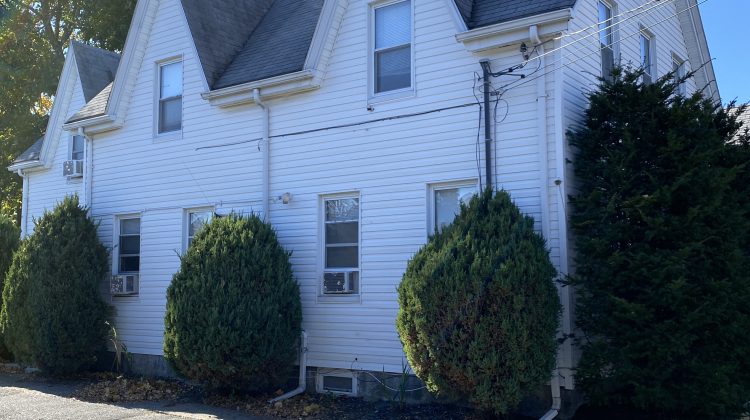The Swampscott Historical Commission voted unanimously in favor of a nine-month demolition delay for a more than 152-year-old home at 11 Boynton St., with the aim of preserving the property’s unique exterior in a similar fashion to the neighboring 9 Boynton St. home.
A demolition permit was submitted to the town’s building department on Oct. 5, prompting a Dec. 27 public hearing.
At the hearing, the commission heard from several residents of the area, all of whom had lined up in opposition to the demolition, fearing that new development on the property could puncture the fabric of the area.
Among those opposed was 12 Boynton St. resident Chris Robinson, who said he would have to have a “better understanding” of what is being proposed for the site before he could support any project in the neighborhood.
“It could use some sprucing up, but I think a complete demolition is extreme,” Robinson said.
Commission Vice Chair Jonathan Leamon explained that the home was constructed in an early Gothic style, with steeply pitched gables that mirror many of the other houses in the neighborhood.
Additionally, Commission Chair Nancy Schultz said the commission’s effort to preserve the Boynton Street home, the origin of which traces back to the town’s expansion and railroad construction in the late 1800s, aligns with the commission’s overall goals of preserving Swampscott’s untold histories.
“That’s sort of been a new direction that we’ve been pursuing. This part of town has several houses in the same unique architectural styles. There’s a real neighborhood character to this section of town and it’s a part of the town, because it borders on the Lynn line, that’s been historically overlooked,” Schultz said. “It might not be as glamorous as the grand hotels or as romantic as the town’s fishing history, but it’s a part of town that borders on our our mother city, Lynn, and it’s often a place where people who wanted to live in Swampscott got their first footing.”
Schultz added that 3 Boynton St. was one of the few North Shore properties listed as a safe lodging spot in the “Negro Motorist Green Book,” a segregation-era guide for Black travelers searching for a safe place to stay.
During the commission’s meeting on Thursday, Jerzy Wabno, who represents the property’s future owner, expressed frustration with the commission’s plea for an interior renovation and preservation. Wabno said that the property’s interior would never be able to gain compliance with modern building or energy codes, and that an attempt to renovate the property would be like putting “lipstick on a pig.”
“I spoke with an architect, and I asked him to preserve the character, not the building, the character of the neighborhood. That’s what we’re supposed to see on the plans,” Wabno said.
Wabno also noted that the commission previously deemed the 9 Boynton St. home, which shares similar architectural and historical properties with its 11 Boynton St. neighbor, “historically insignificant.” He said that developer’s decision to renovate, rather than demolish, the home had nothing to do with the commission’s feedback.
As Wabno agreed to work with an architect to draft potential designs for the house, Leamon said the commission would be pleased with a plan that would at least preserve the house’s exterior and renovate the home’s interior.
“My hope is that we can achieve a similar result (to that of 9 Boynton St.), where the streetscape is preserved, and this house becomes, you know, another beautiful restored home, just as other homes in the neighborhood have been restored,” Leamon said.
Schultz said that she hopes the commission can continue working with developers to ensure that historical preservation and development can co-exist in Swampscott.
“We just hope that we could collaborate with developers so that the need for affordable housing gets satisfied, the need for housing gets satisfied, yet we can somehow really work together to maintain and retain the important history and historic architecture in Swampscott,” Schultz said.

